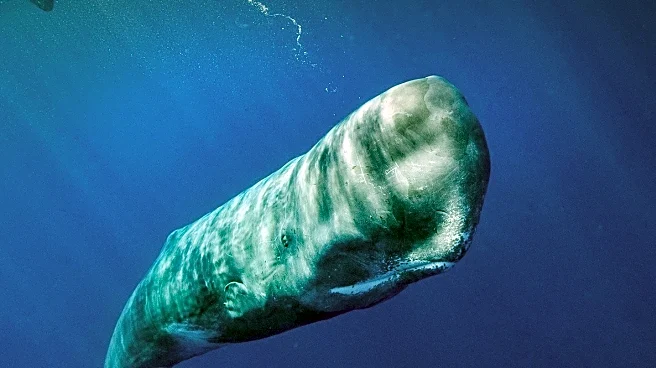What is the story about?
What's Happening?
A rare Pygmy Sperm Whale was discovered dead on the beach at Bigbury on Sea, Devon. Post-mortem tests conducted by the Cetacean Strandings Investigation Programme (CSIP) revealed that the whale likely died from head trauma. The whale, measuring between 11ft to 13ft, was found in a decomposed state, but investigators were able to gather significant data. The whale was identified as an aged adult male, with many teeth missing or broken. The exact cause of the trauma remains unknown, but it is speculated to be due to physical impact.
Why It's Important?
The discovery of a rare Pygmy Sperm Whale highlights the challenges faced by marine species and the importance of understanding their life and death. Such strandings provide valuable insights into the health of marine ecosystems and the threats these animals face. The rarity of the species in UK waters makes this event significant for marine biologists and conservationists. Understanding the causes of such strandings can inform conservation strategies and help protect vulnerable marine species from human-induced threats.
What's Next?
Further analysis of the whale's remains may provide more information about the circumstances leading to its death. The CSIP will continue to monitor and investigate cetacean strandings to gather data that can aid in conservation efforts. Increased awareness and research into marine life strandings may lead to improved policies and practices to protect these animals. Collaboration between marine biologists and conservation organizations will be crucial in addressing the factors contributing to such incidents.
Beyond the Headlines
The event raises broader questions about human impact on marine environments and the need for sustainable practices. It underscores the importance of marine conservation and the role of scientific research in understanding and mitigating threats to marine biodiversity. The incident may prompt discussions on the ethical treatment of marine life and the responsibilities of coastal communities in preserving natural habitats.
















